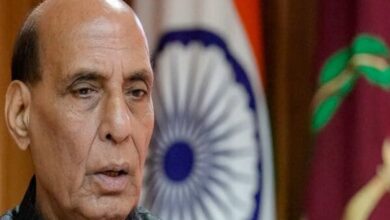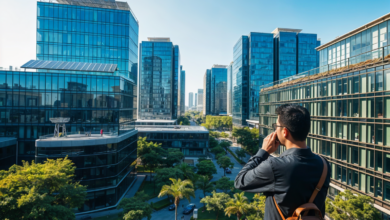The $100 Billion Club Gets Crowded. 15 Members and Counting, But Who’s Paying the Price?

15 Super Rich Just Made it to the $100 Billion Club. How the Rich Get Richer While We Fall Behind. A Sign of Progress or a Sign of Inequality?
The increase in the number of people with $100 billion has caught the world’s attention, as there are now 15 members in this exclusive group for the first time as per Bloomberg Billionaires Index. Most of them are tech leaders like Bezos, Musk, and Zuckerberg, who have a lot of power and influence. However, there are worries about wealth being concentrated in the hands of a few, with just 0.5% of billionaires owning 14% of all billionaire wealth. The rise of super-rich individuals like Arnault and Ambani raises concerns about income inequality and how such vast fortunes affect society. As these ultra-rich people become even richer, many are watching closely and questioning the effects of this massive wealth.
This isn’t just a slow increase in wealth for a few. It’s like a sudden burst of money, happening when many people are finding it hard to afford basic necessities. Is this because the economy is doing great, or is it because the system favours the extremely wealthy?
Their wealth has grown a lot recently, but this makes us wonder: should we be happy about this, or is it a sign that something is wrong in society?
In 2023, the total number of billionaires worldwide actually decreased from 2,668 in 2022 to 2,640. However, the total wealth held by the remaining billionaires continued to grow, with the top 10 alone accounting for a significant portion of this wealth. This trend highlights the alarming rate at which wealth is being concentrated in the hands of a few individuals.

The $100 Billion Club is almost entirely dominated by American tech billionaires. This includes figures like Jeff Bezos, Elon Musk, and Mark Zuckerberg, whose wealth is primarily tied to the stock market valuations of their companies.
To put the wealth of these individuals into perspective, consider this: the net worth of each of these 15 billionaires is greater than the GDP of entire countries like Panama, Uruguay, Costa Rica, or Bolivia. This level of wealth concentration is unprecedented and raises serious questions about the fairness and sustainability of the current economic system.
As the rich get richer, the gap between the wealthiest individuals and the rest of society continues to widen. These 15 billionaires alone hold 14% of all billionaire wealth, despite making up just 0.5% of the world’s 2,781 billionaires. This disparity has extensive consequences for social and economic stability, as it erodes the middle class and extends a cycle of inequality.
Wealth inequality
The concentration of such vast wealth in the hands of a few individuals highlights the growing wealth gap between the ultra-rich and the rest of society. This disparity has far-reaching consequences for social and economic stability.
Tax avoidance strategies
Are these billionaires paying enough to help with important things like healthcare and schools? Definitely not. Our tax laws have lots of ways for them to keep their money while regular people pay for things like fixing roads and schools with not enough money. It’s not a fair system; it’s set up to help the rich get richer.
The tax strategies employed by the ultra-wealthy, such as borrowing against their assets to avoid selling stock and deferring taxes on unrealized capital gains, further contribute to the erosion of the social contract. As a result, the burden of funding public services and infrastructure often falls disproportionately on the middle and lower classes.
Disproportionate influence
The accumulation of such vast fortunes by a small number of individuals gives them significant influence over the global economy, politics, and even philanthropy. Their decisions and investments can shape the trajectory of entire industries and communities, often with little oversight or accountability.
Lack of social responsibility
Philanthropy alone is not enough to offset the negative consequences of extreme wealth inequality. A fundamental shift in mindset and a commitment to using their influence to create a more just and sustainable world is necessary.
Unsustainable growth
The rapid accumulation of wealth by these individuals raises questions about the sustainability of the current economic system. As the rich get richer, the system becomes increasingly fragile and vulnerable to shocks.
The report says that changes in global politics are a factor. Does that mean these billionaires are taking advantage of the pandemic and the war in Ukraine to get richer?
While the world struggles with chaos, these elites see a chance to profit. Their wealth comes from the suffering of others, not from innovation or hard work. Do they ignore the human cost of their greed, or just not care?
Why Are They Getting Richer?

While rich people celebrate, many of us feel left out. Fifteen more super-rich people have just joined the $100 billion club. Why is this happening? Is it due to new inventions, or is the system rigged to make the rich even richer while everyone else struggles? There are many reasons behind it:
Unfair Practices
Big Tech: Using Tricks, Not New Ideas
Tech giants like Bezos and Musk aren’t making the world better with new ideas. They’re making tons of money by finding loopholes, controlling markets, and making sure they make the most profit, even if it hurts others. When just a few companies control everything, it’s hard for new ideas to grow, and competition suffers.
Luxury Sellers
Making Money from Our Desire for Fancy Things
The super-rich are making huge profits selling expensive stuff to people who want to show off. This doesn’t mean the economy is doing well—it shows how obsessed we are with showing off. While the rich get richer, regular people struggle to afford basic things.
Taking Advantage of Problems
The report says global problems are part of the reason for this wealth increase. But does that mean the super-rich are making money off of people’s suffering? They’re not making money by being smart; they’re making money by taking advantage of bad situations. Do they not care about the harm they cause, or do they just not notice?
A Broken System
Rich People Avoiding Paying Their Fair Share
The super-rich aren’t paying what they should. They use loopholes to keep their money while public services suffer. It’s not fair—they make the rules to help themselves, while everyone else struggles.
Exploiting Workers
Many of these super-rich people make their money by paying workers very little. Amazon workers have tough jobs, and people in other countries make luxury goods for almost no pay. This huge increase in wealth isn’t because of hard work—it’s because they take advantage of people who work hard for very little.
Greed and Short-Term Thinking

Putting Money Before Everything
Companies care more about making money now than making things better in the long run. They spend money on things that make their stock prices go up and pay their bosses a lot, but they don’t invest in new ideas or help their workers.
Ignoring Real Progress
Caring More About Making Money Than Helping People
When just a few companies control everything, they care more about making money than coming up with new ideas. They focus on making as much money as possible from things they already have instead of making things better.
Responsibility for Wealth Inequality
The rise of the $100 Billion Club, with 15 individuals now holds a net worth exceeding $100 billion, has sparked a global conversation about wealth inequality and who should be held accountable. While it’s easy to point fingers at the ultra-wealthy, the reality is that the responsibility for this concerning trend lies with a complex web of factors, including policymakers, regulators, and the systems that enable such extreme wealth accumulation.
The Billionaires: Exploiting the System or Playing by the Rules?
It’s tempting to vilify the billionaires themselves, accusing them of greed and selfishness. After all, they are the ones who have amassed such vast fortunes, often at the expense of their workers and the environment. However, the truth is more nuanced. Many of these individuals have built their wealth through innovation, hard work, and shrewd business decisions. They have played by the rules set forth by the system, even if those rules are heavily tilted in their favour.
The Role of Policymakers and Regulators
The real culprits in this story are the policymakers and regulators who have allowed the system to become so skewed in favour of the wealthy. Tax policies that favour the rich, lax regulations on corporate behaviour, and a lack of enforcement when it comes to white-collar crime have all contributed to the widening wealth gap. Politicians who are beholden to wealthy donors and special interests have consistently prioritised the interests of the rich over those of the general population.
The Complicity of the Financial Sector
The financial sector has also played a significant role in enabling the concentration of wealth. Banks, hedge funds, and investment firms have created complex financial instruments and tax avoidance strategies that allow the ultra-wealthy to grow their fortunes even further. They have profited handsomely from the wealth of the rich, often at the expense of the rest of society.
The Failure of Trickle-Down Economics
For decades, policymakers have pushed the idea of trickle-down economics, the notion that cutting taxes for the wealthy will lead to job creation and economic growth that will benefit everyone. However, the evidence clearly shows that this theory is flawed. The wealth generated by the rich has not trickled down to the rest of society, but has instead been used to further enrich themselves and their families.
The Myth of Meritocracy
Another factor that has contributed to wealth inequality is the myth of meritocracy. The idea that anyone can become wealthy through hard work and talent is a powerful one, but it ignores the reality of systemic barriers and inherited privilege. Many of the ultra-wealthy have benefited from generational wealth, good education, and connections that have given them a significant head start in life.
The Responsibility of Society as a Whole
Ultimately, the responsibility for wealth inequality lies with all of us, as members of society. We have allowed the system to become so skewed in favour of the wealthy, and we have not done enough to demand change. We have accepted the idea that the rich deserve their wealth, even when it comes at the expense of the rest of society.

What Can Be Done?
So, what can be done to address wealth inequality and hold those responsible accountable? Here are a few ways:
Senior Authorities Must Act Now to Address Wealth Inequality
The staggering rise of the $100 Billion Club, with 15 individuals now boasting a net worth exceeding $100 billion, is a stark reminder of the urgent need for action from senior authorities to address the growing problem of wealth inequality. As the gap between the ultra-rich and the rest of society continues to widen, it is clear that the current system is not working for the vast majority of people.
Implement Progressive Tax Policies
One of the most important actions that senior authorities can take is to implement progressive tax policies that ensure the wealthy pay their fair share. This means closing loopholes that allow the rich to avoid paying taxes, such as the ability to defer taxes on unrealized capital gains. It also means raising tax rates on the highest income brackets and implementing a wealth tax on the assets of the ultra-wealthy.
Strengthen Regulations and Enforcement
Another key action that authorities must take is to strengthen regulations on corporate behavior and increase enforcement of white-collar crime. This means cracking down on practices like tax avoidance, union-busting, and environmental destruction that allow corporations to prioritize profits over people and the planet. It also means holding executives accountable for their actions and imposing stiff penalties on those who break the law.
Invest in Education and Social Programs
To create a more equitable society, senior authorities must also invest heavily in education and social programs that provide opportunities for those born into poverty. This means funding high-quality public schools, providing free or affordable childcare, and ensuring access to healthcare and other essential services. By investing in human capital, authorities can help to level the playing field and give everyone a fair shot at success.
Support Worker Rights and Unions
Another critical action that authorities must take is to support worker rights and unions. This means protecting the right to organise, bargain collectively, and strike. It also means cracking down on employers who retaliate against workers who try to form unions. By empowering workers, authorities can help to ensure that the fruits of economic growth are more evenly distributed.
Increase Transparency and Accountability
To hold the wealthy accountable, senior authorities must also increase transparency in the financial system and in the political process. This means requiring public disclosure of assets and income, as well as banning political donations from corporations and the ultra-wealthy. It also means creating independent oversight bodies to monitor the activities of the rich and powerful and impose penalties on those who abuse their position.
Invest in Green Energy and Sustainability
Finally, senior authorities must take bold action to address the existential threat of climate change by investing heavily in green energy and sustainability. This means phasing out fossil fuels, investing in renewable energy, and creating millions of good-paying jobs in the clean energy sector. By taking action on climate change, authorities can help to create a more sustainable and equitable future for all.
The time for senior authorities to act is now. The longer we wait to address wealth inequality, the harder it will be to fix the problem. The ultra-wealthy have amassed so much power and influence that they are able to shape the rules of the game to their advantage. By taking bold action now, authorities can help to create a more just and equitable society that works for everyone, not just the privileged few.

Opinion
Common citizens expect authorities to address wealth inequality and the rise of the ultra-wealthy. They call for fair tax policies, including closing loopholes and imposing higher taxes on the rich. Significant investment in education, social programs, and healthcare is crucial to provide opportunities for all.
Authorities should hold corporations accountable for unethical practices and ensure transparency in financial and political processes. Executives must face penalties for illegal actions, prioritising the well-being of workers and the environment over profits. Public disclosure of assets and income, banning corporate and ultra-wealthy political donations, and independent oversight can help achieve this. These measures are necessary to create a more equitable and just society.




